| NSPM in English | |||
Bosnia and Syria: Intervention Then and Now |
 |
 |
 |
| субота, 24. август 2013. | |
|
(Boston Review, 15. 8. 2013)
When state order collapses, as it did in Yugoslavia in the 1990s, as it is doing now in Syria, chaos unleashes existential fear among all the groups who had once sheltered under the protection of the state. Such fear makes it difficult to sustain multi-confessional, pluralist, tolerant orders when dictatorship falls apart. When state order collapses, every confessional or ethnic group asks one question: Who will protect us now? As Sunni, Alawite, Christian, Druze and Shia ask this question, they know the only possible answer is themselves. In a Hobbesian situation—a war of all against all—each individual gravitates back to the security offered by their clan, sect or ethnic group, or more precisely, to those individuals within those groups who offer armed protection. This is especially the case when dictatorships collapse, for in this case a security vacuum emerges on top of a political one. In a state that never permitted mobilization of political parties across sectarian, clan, or ethnic divides, none of these groups has learned to trust each other in a political order. They may share a hatred of the dictator and a fear of what comes next, but not much else. Politics has never brought them together before. Now they are faced with security dilemmas and they conclude, rationally enough, that they can only face these dilemmas alone, in the safety of their own group. Such was the case in the former Yugoslavia. Such is the case now in Syria. In listening to the Syrian opposition figures who have fought courageously to create a pluralist, multi-confessional democratic Syria upon the ruins of the Assad regime, I am struck by how much they sound like Yugoslavs, especially the Bosniaks of the early 1990s. They too sought to create a post-ethnic politics after Tito’s death. They too sought to preserve the complex, multi-confessional heritage of tolerance that many in the Syrian opposition are struggling to preserve. These ideals are not abstractions. These Syrian patriots actually lived a Syrian identity beyond confessional divisions. The lesson from Yugoslavia is how difficult it is to sustain these connections and a common identity in the face of the fear that overcomes all ethnic groups upon the collapse of state order. Common identities and loyalties rarely survive the rush to the protection of armed groups and the bitterness that results when these groups begin killing each other. Neither the Yugoslavs of the 1990s nor Syrians today are trapped in sectarian, Islamist ‘fanatical’ or ‘primitive’ or ‘archaic’ emotions (to quote some of the condescending terms that outsiders used to describe the hatreds that tore Yugoslavia apart). What they both lack is time, the experience of democracy, and the opportunity—it can take generations—to forge political alliances across confessional, sectarian, and clan lines. This was the legacy of dictatorship that Tito bequeathed to Yugoslavia and it is Assad’s poisonous gift to Syria. No wonder then that it has proved agonizingly difficult for the Syrian opposition to create a common front against the dictator and a political program for their country after Assad is defeated, killed, or driven into exile. No wonder then that the chief casualty of the Assad regime might just be Syria itself.
What they both lack is time, the experience of democracy, and the opportunity to forge political alliances across confessional, sectarian, and clan lines. Intervention will not occur until interveners can identify with a cause that democratic electorates in Western states can make their own. In the former Yugoslavia it was the Bosniak Sarajevans who understood this clearly and helped to mobilize the outrage in Western countries that eventually made intervention possible. They had always stood for a tolerant, multi-confessional city and in retrospect they did a heroic job in making their cause Europe’s own. Intervention finally occurred in 1995, at least in some measure because international opinion identified the Bosniaks as a worthy victim who could be assisted in the name of a general defense of ‘European values.’ The massacre in Srebrenica and the market bombing in Sarajevo were triggers for intervention, but the ideological ground had been prepared in the West by Sarajevan suffering in the siege. For the moment, the Syrian opposition has failed in making their cause a universal claim.
When Western governments consider Syrian pleas for intervention, it is not Bosnia that comes to their minds, but Iraq, Afghanistan, and Libya. The decade of interventions that began after 9/11 appears to deliver only lessons of futility and perversity. A decade later both Iraq and Afghanistan rank as failed states. In Libya, Qaddafi may be gone, but power remains in the hands of militias. Moreover, once Qaddafi’s arms flowed out into the Sahara to the Tuareg and al Qaeda in the Maghreb, they were able to take their uprising against the state of Mali to within striking distance of the capital, forcing a French intervention. Anyone contemplating intervention in Syria has to prevent unintended consequences like these, especially the leakage of Syrian chemical and biological weapons stocks to al Qaeda affiliates. Libya, Iraq and Afghanistan only partly explain why such domestic support as once existed for “humanitarian intervention” has disappeared. Life has also changed for the intervening states themselves. The interventions in Bosnia—and later in Kosovo—were the work of a different time. They were discretionary affairs, small wars of choice that were easily paid for by expansive European and North American societies whose economies were growing robustly. The political confidence that led to these operations depended on budgetary surpluses and on euphoric confidence in the superiority of the Western democratic model in the unipolar moment that followed the collapse of the Soviet Empire. In the current age of sequester, austerity and deficit, this confidence has vanished. Europe’s political elites are exclusively focused on the survival of their economic and political union. The United States, likewise, is struggling with deficits, austerity and recession. To recession-weary democratic publics, nation-building at home seems a more defensible project than nation-building abroad.
In this climate of reduced expectation, a risk-averse form of Realism has taken hold of Western capitals, particularly Washington. Realist proponents ask, what interest does the United States actually have in intervening in Syria at all? Or more pungently, who cares which bunch of thugs runs the country? These are necessary questions and the failure to ask them over Iraq in 2002 led to disaster. After Iraq, the lesson learned has been no more wars of choice, only wars of necessity. The wars of necessity that command reluctant democratic assent in the U.S. are now the drone strikes in Yemen and Pakistan. It is a sign of the new climate of opinion that when asked about Syria, Obama replied, “Why Syria, why not Congo?” The President’s rhetorical question implied its own answer. Humanitarian suffering alone constitutes no clear principle of triage, and it is a president’s job to do triage, to apportion scarce national resources and scarcer political capital to a few vital tasks. Bloodshed and carnage alone will not—and should not—trigger the dispatch of the Marines. Inside and outside, exiles and front-line fighters regard each other with suspicion.
It follows, unfortunately, that if seventy thousand deaths in the Syrian civil war have not created the political will to intervene, there is no good reason to suppose that double that number will have any more effect. The Lebanese civil war burned for twenty years. It is not impossible to anticipate the same result in Syria—and for similar reasons. In both Lebanon and Syria, and unlike in Bosnia, external Western interveners have been unable to identify a side whose victory would further their interests. Western policy is navigating between Scylla and Charybdis. Aligning with the Russians to prop up Assad would be both unconscionable and futile. Invading Syria would reproduce the folly of Iraq. The policy alternative in the middle, between these two options, is hard to define because the Syrian rebels do not constitute either a united front or a believable alternative to the Assad regime. There are no good guys, no victims whose cause can be sold to reluctant publics to ennoble a humanitarian rescue. So little has been done by Washington to aid the rebels that the policy—high on rhetoric, low on action—reads like a further indication—if the failure to move Israel and Palestine towards peace weren’t enough indication already—of reduced American influence in the entire Middle East. For the Realists, facing up to the decisive limits of American power in the region is the beginning of wisdom. For others, Realism looks like abandonment.
Apparently after much internal debate the Obama administration has concluded that Syria does matter. Lethal and non-lethal aid is being funneled to Syrian fighters, through Turkey and through Jordan, under the watchful eye of the CIA. Further assistance is reaching the fighters through Saudi Arabia and the Gulf states. The purpose of arms transfer is political as much as it is military. Its intent is to give the U.S. and its allies some leverage over the groups who receive the arms. The leverage, presumably, will be applied to induce the Syrian opposition to behave like a government in waiting and to act like one when Assad falls. Acting like a government would mean doing whatever it can to preserve the territorial integrity of Syria and to prevent a wave of revenge killings against minorities, particularly the Alawites. Behaving like a government would mean initiating an inclusive constitutional process that would give a fractured society a chance to heal and come together. Behaving like a government would mean accepting U.N. peacekeepers to give the society the chance to hold violence-free elections. To recession-weary democratic publics, nation-building at home seems a more defensible project than nation-building abroad. The question no one can answer is whether external aid has come too late to confer any leverage at all, as the rebels close in and the final battles for Damascus get underway. The same question hovers over the increasing flow of aid to civilian authorities and municipalities in the liberated zones of Syria. What leverage can the U.S. hope to exert over the post-Assad landscape when aid has been so little and so late? The decisive gesture, of course, would be for the United States to interdict Assad’s use of air power, possibly through the activation of the Patriot batteries in Turkey. Thus far, there is no evidence that the U.S. is ready to take this step, and its hesitation is a mixture of risk aversion and strategic calculation. The Syrian crisis has dug the Russians and Chinese ever more deeply into their opposition to any U.N. Security Council authorization of the use of force, and so the Americans face a lesser-evil choice. Interdiction of Assad’s air power would collapse the Assad regime, but it would also jeopardize the support America needs from these powers in its ongoing duel with the Iranians. America will have to decide whether it needs China and Russia more than it needs leverage over post-Assad Syria and the new landscape in the region.
This essay is exerpted from The Syria Dilemma, edited by Nader Hashemi and Danny Postel and forthcoming from MIT Press |
Од истог аутора
Остали чланци у рубрици
- Playing With Fire in Ukraine
- Kosovo as a res extra commercium and the alchemy of colonization
- The Balkans XX years after NATO aggression: the case of the Republic of Srpska – past, present and future
- Из архиве - Remarks Before the Foreign Affairs Committee of the European Parliament
- Dysfunction in the Balkans - Can the Post-Yugoslav Settlement Survive?
- Serbia’s latest would-be savior is a modernizer, a strongman - or both
- Why the Ukraine Crisis Is the West’s Fault
- The Ghosts of World War I Circle over Ukraine
- Nato's action plan in Ukraine is right out of Dr Strangelove
- Why Yanukovych Said No to Europe

.jpg)
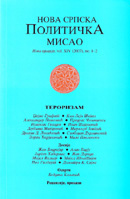

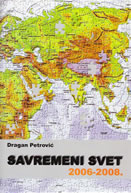






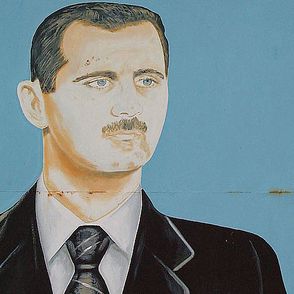 Such an analysis helps us to explain why the anti-Assad opposition has been unable to create a believable government in exile linked both to commanders at the front and to the municipal authorities in the liberated zones. Inside and outside, exiles and front-line fighters regard each other with suspicion. There is no effective national command of the insurrection and hence no shared political claim to defend together. In addition there are a number of fighters, the al Nusra Brigade being only one example, for whom the goal is not the defense of a multi-confessional Syria but the creation of an Islamic caliphate in Arab lands. As Western governments have considered their options since the uprising began, they have found it easier to identify those they want to lose than those they want to win.
Such an analysis helps us to explain why the anti-Assad opposition has been unable to create a believable government in exile linked both to commanders at the front and to the municipal authorities in the liberated zones. Inside and outside, exiles and front-line fighters regard each other with suspicion. There is no effective national command of the insurrection and hence no shared political claim to defend together. In addition there are a number of fighters, the al Nusra Brigade being only one example, for whom the goal is not the defense of a multi-confessional Syria but the creation of an Islamic caliphate in Arab lands. As Western governments have considered their options since the uprising began, they have found it easier to identify those they want to lose than those they want to win.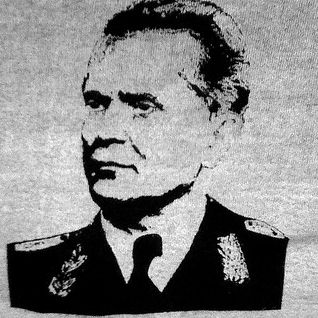 The Western intervention in Bosnia—air-strikes on Bosnian Serb targets, clandestine assistance to Croatian and Bosniak units who then drove Serb minorities from Croatian and Bosnian territory—brought the parties to Dayton in October 1995. There Richard Holbrooke negotiated a peace that preserved Bosnia-Hercegovina as a state and forced institution sharing upon unwilling enemies. Western intervention did not succeed in recreating the inter-ethnic tolerance and accommodation. It may only have locked ethnic hostility in place, but it did force ethnic groups to deal with each other politically and to accept, over time, that limited co-operation was a better option than war. The fact remains that no one is dying in Bosnia today.
The Western intervention in Bosnia—air-strikes on Bosnian Serb targets, clandestine assistance to Croatian and Bosniak units who then drove Serb minorities from Croatian and Bosnian territory—brought the parties to Dayton in October 1995. There Richard Holbrooke negotiated a peace that preserved Bosnia-Hercegovina as a state and forced institution sharing upon unwilling enemies. Western intervention did not succeed in recreating the inter-ethnic tolerance and accommodation. It may only have locked ethnic hostility in place, but it did force ethnic groups to deal with each other politically and to accept, over time, that limited co-operation was a better option than war. The fact remains that no one is dying in Bosnia today.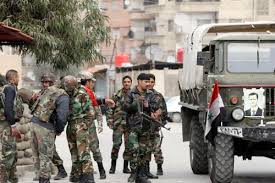
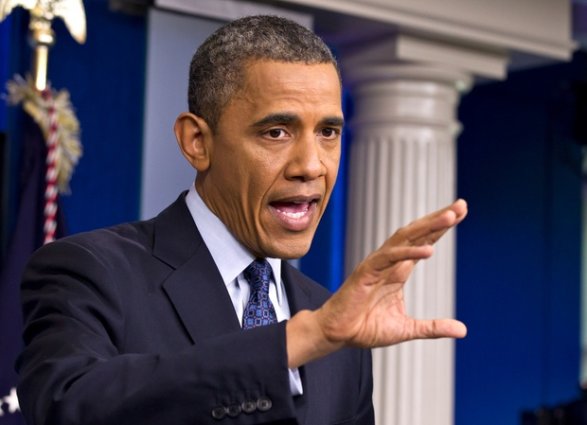
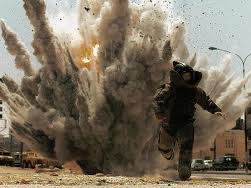 Can it really be true that the United States and its allies in the region have no strategic interest in which group of thugs eventually rules Syria? Can it really be true that America will suffer no consequences in the “Arab street” for standing by while tens of thousands of Syrians are killed by their own regime? Is it in America’s interest for Syria to collapse and become a failed state? To pose these as rhetorical questions is to suggest the answers. Syria matters, and its future matters not only to itself and its people but to an entire region and to Western interests there.
Can it really be true that the United States and its allies in the region have no strategic interest in which group of thugs eventually rules Syria? Can it really be true that America will suffer no consequences in the “Arab street” for standing by while tens of thousands of Syrians are killed by their own regime? Is it in America’s interest for Syria to collapse and become a failed state? To pose these as rhetorical questions is to suggest the answers. Syria matters, and its future matters not only to itself and its people but to an entire region and to Western interests there.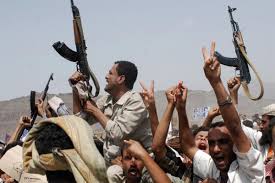 Nearly twenty years ago, as the intervention in Bosnia came together, the geo-strategic order looked very different. The Russian state was near collapse and the Chinese were cautiously edging their way out into the international arena. Neither stood in the way of intervention in Bosnia. Today, the Syrian crisis lays bare the contours of a very different world: divided between authoritarian crony capitalist oligarchies that have set themselves against any form of international intervention in sovereign states and distracted, deficit-ridden democracies that lack the will or capacity to shape even a region as strategic as the Middle East. The Syrians huddling under tents in Lebanon, Jordan and Turkey, the families queuing for bread in free Aleppo while scanning the sky for planes overhead, the fighters taking on a dictator’s tanks—they are the ones paying the price for this divided world. They are the ones now thinking that they have been abandoned. If they win their freedom, they will have no reason to thank us and they will have no inclination, as they settle their scores, to listen to anything the West, or anyone else, has to say. We should will them on to victory, but due to our inability to act consequently in their defense, we have reason to wonder whether Syria will survive once they win.
Nearly twenty years ago, as the intervention in Bosnia came together, the geo-strategic order looked very different. The Russian state was near collapse and the Chinese were cautiously edging their way out into the international arena. Neither stood in the way of intervention in Bosnia. Today, the Syrian crisis lays bare the contours of a very different world: divided between authoritarian crony capitalist oligarchies that have set themselves against any form of international intervention in sovereign states and distracted, deficit-ridden democracies that lack the will or capacity to shape even a region as strategic as the Middle East. The Syrians huddling under tents in Lebanon, Jordan and Turkey, the families queuing for bread in free Aleppo while scanning the sky for planes overhead, the fighters taking on a dictator’s tanks—they are the ones paying the price for this divided world. They are the ones now thinking that they have been abandoned. If they win their freedom, they will have no reason to thank us and they will have no inclination, as they settle their scores, to listen to anything the West, or anyone else, has to say. We should will them on to victory, but due to our inability to act consequently in their defense, we have reason to wonder whether Syria will survive once they win.












